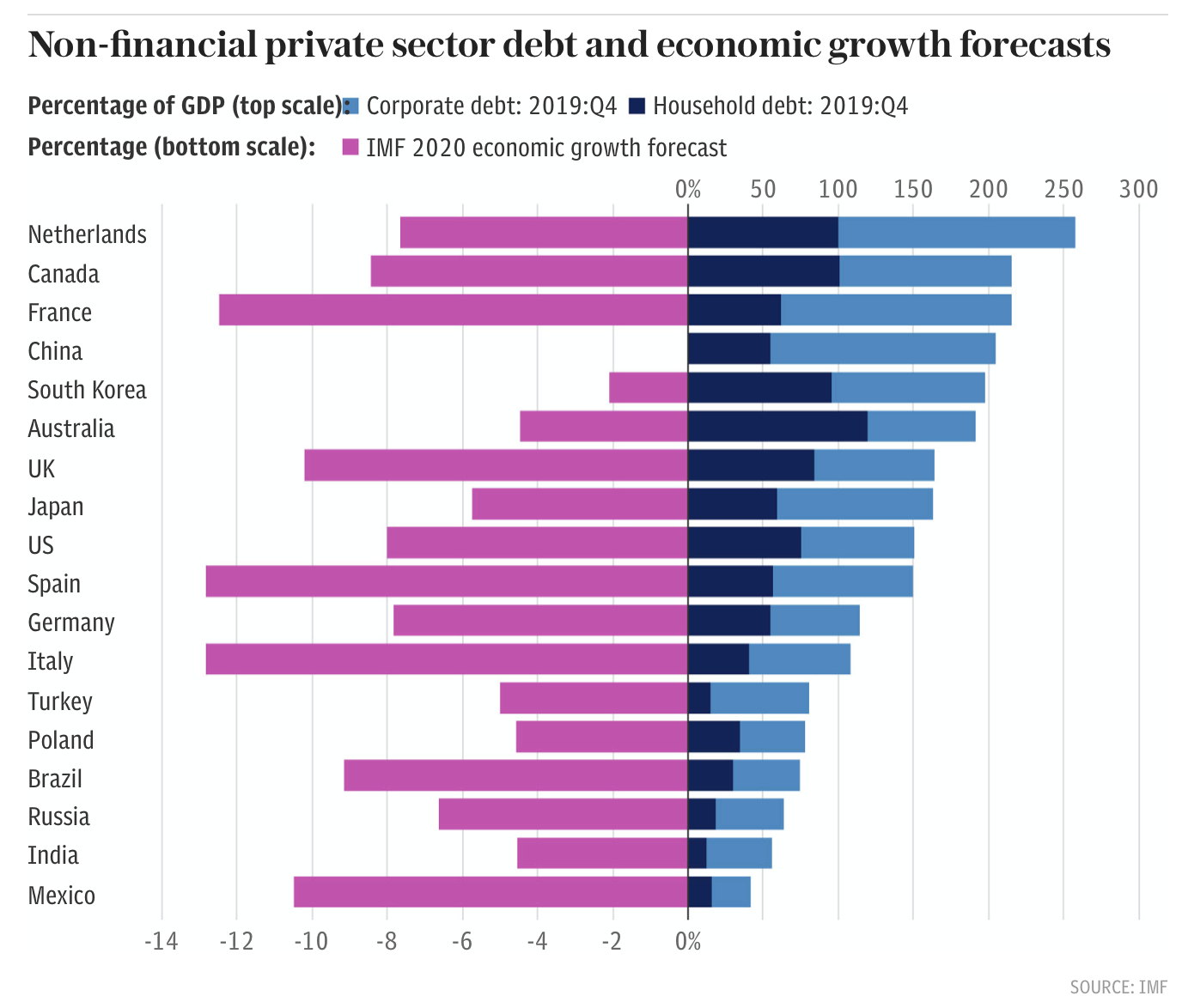IWF: Globaler Schuldenberg untragbar
Staaten und Notenbanken haben 18 Billionen US-Dollar mobilisiert, um die wirtschaftlichen Folgen des politisch gewählten Weges gegen die Corona-Krise zu bewältigen:
→ 18 Billionen, um die Weltwirtschaft zu retten
Und es spricht viel dafür, dass es nicht bei den 18.000.000.000.000 Euro bleibt. Warum auch? Hat man sich erst daran gewöhnt, dass es auch bei uns keine Budgetrestriktion mehr gibt, kann man, wie im real existierenden (Notenbank-) Sozialismus, in die Vollen gehen. Dabei warnt sogar schon der Internationale Währungsfonds – sonst nicht verzagt, wenn es um staatliche Ausgabenprogramme geht – vor den Folgen zu hoher Verschuldung:
- “(…) businesses and households could suffer a meltdown after racking up ‘unmanageable’ debts during the severe recessions triggered by Covid-19, the International Monetary Fund has warned. Corporate debt piles – already at historically high levels when the disaster struck – could trigger a lethal cascade of insolvencies, the IMF said, derailing any recovery before it picks up steam. Households saddled with high borrowing since the 2008 financial crisis are also under threat.” – bto: Das kann nun wirklich nicht wundern.

Quelle: IMF, Telegraph
- “(…) a likely surge in insolvencies will ‘test the resilience’ of the banking industry, despite widespread efforts to prop up balance sheets since the 2008 crash. (…) defaults could be the trigger of another financial crisis down the road. (…) Credit ratings agency Standard and Poor’s warned that some indebted industries could suffer lower revenues and higher costs for years to come due to persistent social distancing rules and a weak economic recovery, placing their finances under severe strain.” – bto: So ist es. Es wird keine leichte Erholung geben. Die Cashflows und damit die Schuldentragfähigkeit bleiben unter Druck.
- “Prospects are particularly grim in sectors reliant on social activity: ‘Some industries, notably those that involve groups of people in close proximity (eg. cruises, airlines, airports, gyms, theatres, restaurants, retail), may not return to prior levels of revenue for several years. These sectors may face ongoing social distancing rules, leading to capacity restrictions, higher operating expenses, and reluctant consumers until we have widespread vaccination.’” – bto: Natürlich haben wir die Hoffnung auf eine Impfung. Dennoch mag es sein, dass der gesellschaftliche Wandel viel tiefer geht.
- “The IMF also raised concerns in its latest global financial stability update about the unintended effects of the trillions of dollars deployed by policymakers in vast money-printing programmes to ease the impact of the virus. It said this could cause dangerous exuberance in financial markets – and gave a veiled hint that central banks should be ready to pull the plug.” – bto: Also wir wissen doch, dass die Liquidität nötig war, um eine Kernschmelze im Finanzsystem zu verhindern. Da den Stecker zu ziehen, kann nur erhebliche Probleme mit sich bringen.
- “‘Policymakers need to be attentive to possible unintended consequences, such as a continued build-up of financial vulnerabilities in an environment of easy financial conditions,’ the IMF said. ‘The expectation of continued support from central banks could turn already stretched asset valuations into vulnerabilities.’” – bto: Ist das nicht schon seit Jahren der Fall?
→ telegraph.co.uk: “Global debt surging to ‘unmanageable’ levels, IMF warns”, 25. Juni 2020







